-
 +12 +1
+12 +1Air pollution can drive people to kill themselves
Polluted air is bad for your health. It increases the risk of strokes, heart disease and a list of respiratory illnesses. It is linked, as well, to low productivity at work and poor scores on academic tests. And pollution may have a yet-more-sinister effect. It may also promote suicide.
-
 +4 +1
+4 +1Ford dumped toxic sludge on tribal land. Years later, it’s still making people sick
A lawsuit filed by New Jersey will attempt to hold Ford accountable for decades of environmental damage to native lands. Richard Hall talks to the residents still fighting for justice.
-
 +17 +1
+17 +1One Small Crack on a Teflon Pan Can Release Thousands of Plastic Particles
A new study reveals just how many tiny plastic particles might be seeping into our foods after contact with cooking utensils, with a small broken crack on a Teflon-coated pan potentially releasing as many as 9,100 particles.
-
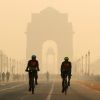 +20 +1
+20 +1Delhi stops construction as pollution set to worsen from Tuesday
Delhi has suspended most construction and demolition activities as air quality in the Indian capital is set to worsen from Tuesday because of calmer winds and other
-
 +18 +1
+18 +1The Clean Water Act at 50: Big Successes, More to Be Done
Sparked by the 1970s environmental movement, the Clean Water Act — which marks its 50th anniversary this month — transformed America’s polluted rivers. The Delaware, once an industrial cesspool, is one of the success stories, but its urban stretches remain a work in progress.
-
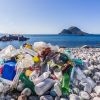 +12 +1
+12 +1Why Plastic Pollution Is a Producer Responsibility
We won’t be able to stem the tide of plastic waste until manufacturers are held accountable for their products.
-
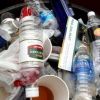 +19 +1
+19 +1Only 5% of plastic waste generated by US last year was recycled, report says
Only 5% of the mountains of plastic waste generated by US households last year was recycled, according to new research by Greenpeace. Americans discarded 51m tons of wrappers, bottles and bags in 2021 – about 309lb of plastic per person – of which almost 95% ended up in landfills, oceans or scattered in the atmosphere in tiny toxic particles.
-
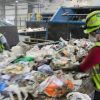 +26 +1
+26 +1Plastic recycling a "failed concept," study says, with only 5% recycled in U.S. last year as production rises
Greenpeace USA blasted industry claims of creating an efficient, circular economy as "fiction."
-
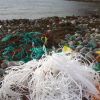 +19 +1
+19 +1740,000km of fishing line and 14 billion hooks: we reveal just how much fishing gear is lost at sea each year
Each year, enough fishing line to circle the Earth 18 times is lost at sea. This not only harms marine life, but also the livelihoods of fishers worldwide.
-
 +14 +1
+14 +1Something’s in the air: It’s nanoplastic pollution
The tiny bits of plastic that wear off bottles, plastic bags, automotive parts and even cosmetics get into the soil and the water supply. They disrupt chemical cycles, throw off ecosystem health and pollute environments both marine and terrestrial.
-
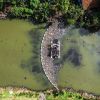 +10 +1
+10 +1'Trashboom' floating barrier prevents tons of plastic from ending up in oceans
Germany-based enterprise Plastic Fischer has invented a floating barrier that aims to prevent tons of plastic waste from entering the oceans. ‘TrashBoom’ is a modular solution made of locally available materials that uses simple technology at a low cost that even developing countries can afford. Avoiding high-tech imports saves time, carbon, and money and ensures quick repair and high scalability.
-
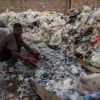 +16 +1
+16 +1How Coca-Cola, Unilever, and Others Delay Action on Plastic
When a huge plastic producer like Coca-Cola says it’s working to solve the plastic crisis, what does that really look like? An investigation published Friday by Bloomberg documents how one initiative in Ghana was used by some of the world’s biggest plastic producers to battle against threats of plastic bans, while failing to deliver on some of its key promises.
-
 +11 +1
+11 +1Car tires are disastrous for the environment. This startup wants to be a driving force in fixing the problem
Every time a driver brakes, accelerates, or turns a corner, their car tires wear down a little. Most car owners replace their tires every five or so years because of this normal wear and tear — but the environmental consequences are extreme.
-
 +21 +1
+21 +1Even low levels of air pollution can damage health, study finds
A study in one of the cleanest countries in the world could help governments think about future ways to manage air pollution. Abundant data from London’s infamous 1952 smog onwards tells us that breathing high concentrations of air pollution harms our health. This feeds into the 20th-century idea of targets for the quality of our air. However, the new study looked at the health harm from air pollution from another angle.
-
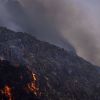 +3 +1
+3 +1Scientists say landfills release more planet-warming methane than previously thought
Landfills are releasing far more planet-warming methane into the atmosphere from the decomposition of waste than previously thought, a study suggests. Scientists used satellite data from four major cities worldwide — Delhi and Mumbai in India, Lahore in Pakistan and Buenos Aires in Argentina — and found that emissions from landfills in 2018 and 2019 were 1.4 to 2.6 times higher than earlier estimates.
-
 +4 +1
+4 +1Rainwater Everywhere Now Considered Too Toxic for Safe Consumption, Study Finds
Atmospheric levels of toxic “forever chemicals” are so high that rainwater everywhere contains amounts that are unsafe for long-term human consumption according to safety guidelines, scientists say.
-
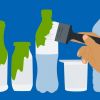 +21 +1
+21 +1European food companies break their plastics promises
Two-thirds of pledges to go greener on plastic fail or are dropped, a DW investigation has found. Here's how European food and drink companies break their own commitments, and how legislation might hold them accountable.
-
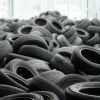 +14 +1
+14 +1Tyre dust: the ‘stealth pollutant’ that’s becoming a huge threat to ocean life
For decades, coho salmon returning from the Pacific Ocean to the creeks and streams of Puget Sound in Washington state to spawn were dying in large numbers. No one knew why. Scientists working to solve the mystery of the mass deaths noticed they occurred after heavy rains. Toxicologists suspected pesticides, as the main creek they studied ran through a golf course. But no evidence of pesticides was found. They ruled out disease, lack of oxygen and chemicals such as metals and hydrocarbons.
-
 +10 +1
+10 +1Study finds plastics in more than half of small land mammals sampled
While researchers continue to deepen our understanding of plastic contamination throughout the environment, much of the focus centers on marine organisms and of course humans themselves. Scientists in the UK have turned their eye to small land mammals and found traces of plastic in more than half the species sampled, with a seemingly equal distribution across locations and even dietary habits.
-
 +16 +1
+16 +1India bans 19 single-use plastic items to combat pollution
Ban includes plastic straws, disposable cutlery, earbuds, candy and ice cream packaging, and cigarette packets.
Submit a link
Start a discussion




















